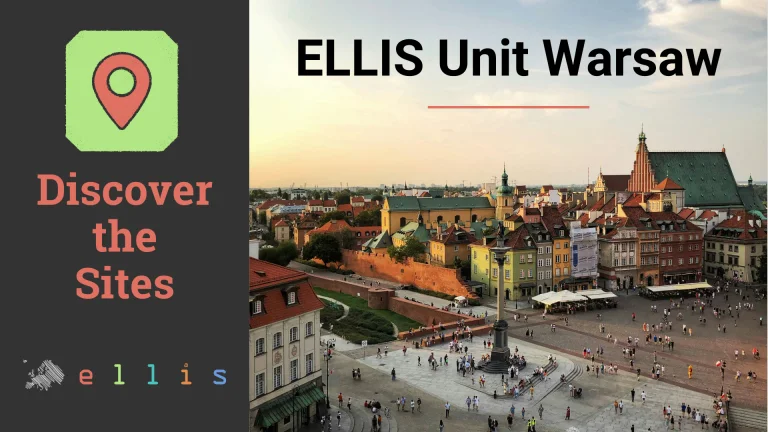



ELLIS Unit Warsaw: Pioneering AI Research in Sustainability & Innovation
Mission & Vision
The ELLIS Unit Warsaw was founded with a clear mission: to bridge the gap between AI research and its application in industry, with a strong focus on sustainability and responsible AI. They direct their research toward developing governance frameworks to ensure AI transparency, fairness, and alignment with human values while addressing ethical and societal challenges.
To achieve these goals, the ELLIS Unit Warsaw collaborates with leading academic institutions, industry partners, and other ELLIS Units across Europe to drive innovation and address global challenges. What makes it unique is its strong commitment to using AI for environmental and social good.
Tomasz Trzciński, the Director of the ELLIS Unit Warsaw and ELLIS Fellow, emphasizes the Unit’s dual focus on academic excellence and practical impact.
In the long term, our goal is to establish our Unit as a pivotal player, both locally, by connecting business and academia, and globally, as a lighthouse for sustainability and research excellence.
One of the hallmarks of the ELLIS Unit Warsaw is its collaborative approach. The Unit actively partners with various stakeholders, including other research institutions, industry leaders, NGOs, and government bodies. This collaboration ensures that the research conducted is not only cutting-edge but also relevant to current and future societal needs.
Key Numbers and Milestones
ELLIS Unit Warsaw, hosted by IDEAS NCBR, officially joined the ELLIS network in November 2023, becoming the first such ELLIS Unit in Poland and one of the first in Central-Eastern Europe.
Since its inception, the Unit has expanded to include a growing number of researchers, reflecting its commitment to advancing AI research in Poland. Now this is 13 reseachers, and two of them - Tomasz Trzciński and Piotr Sankowski - became ELLIS Fellows in 2024.
Organisational Achievements:
The ELLIS Doctoral Symposium 2025 will be hosted at the ELLIS Unit Warsaw, bringing together PhD students and experts from across Europe to share knowledge and foster collaboration on Robust AI.
They hosted two ELLIS PreNeurIPS Conferences, in 2023 and 2024, providing a platform for researchers to present and discuss their work.
They initiated IDEAHACK, the first hackathon organized by IDEAS NCBR, under the auspices of ELLIS Unit Warsaw, promoting innovation and practical problem-solving in AI.
Research Areas
The first field of research is conducted by the Director of the ELLIS Unit Warsaw, Tomasz Trzciński. His research concentrates on efficient machine learning algorithms for computer vision, in particular on conditioning network computations, leveraging partial information for faster inference, and accumulating knowledge in continually trained models.
One focus of this research field lies on “Zero-waste Machine Learning in Computer Vision”, which aims to enhance the efficiency of machine learning models by reusing computations and resources, aligning with sustainable AI practices. Tomasz explores creating models that learn to be efficient, reducing computational costs, and improving performance in applications such as medical imaging and autonomous systems.
Notable published papers include: |
Other areas of research at the ELLIS Unit Warsaw include:
Intelligent algorithms & learned data structures
Machine learning and sequential decision-making
Algorithmic game theory in security
Interpretable artificial intelligence
Autonomous agents
Alignment of language models
Additionally, one of the research areas is AI in healthcare, where the Unit aims to develop advanced algorithms that can support medical diagnosis, personalized treatment, and healthcare management.
Moreover, under the lead of Krzysztof Walas the Unit also explores the integration of AI with robotics, enhancing automation processes, and improving human-robot interaction.
Ongoing Research Projects and Collaborations
Notably, the ELLIS Unit Warsaw is a member of the “ELIAS – European Lighthouse of AI for Sustainability” project consortium, which has received a grant under the Horizon Europe program. This program is the European Union’s flagship funding initiative for research and innovation.
Implemented by Tomasz Trzciński, Bartosz Zieliński, and Bartłomiej Twardowski, the ELIAS project builds a network of excellence, connecting academic researchers with industry professionals to position Europe as a leader in AI-driven sustainability, social cohesion, and respect for individual rights. As part of this initiative, the ELLIS Unit Warsaw collaborates closely with other ELLIS Units to advance responsible AI research and its real-world impact.
The grant for implementing the “EXALT – EXplainable ALgorithmic Tools” project has been awarded by the European Research Council and is funded through the European Union’s HORIZON ERC Proof of Concept Grants program. The EXALT project is led by Piotr Sankowski, who is a Member of the ELLIS Unit Warsaw. The research conducted under the grant focuses on explainable artificial intelligence, with the aim of better understanding algorithmic pathways.
Tomasz Michalak is a Co-Director of the “R-GRID” project. It aims to create an artificial intelligence tool to protect power grid systems. R-GRID will use artificial intelligence to prevent power outages in key sectors or a complete blackout. Simulations generated by R-GRID are intended to help identify critical network elements and increase the resilience of energy systems − considering both traditional and renewable energy sources at various levels of technological advancement. This project was granted by the NATO Science for Peace and Security Program.
Members of the ELLIS Unit Warsaw are also implementing grants from the Polish National Science Center:
Bartosz Zieliński received a grant under the SONATA BIS 13 call for the project “Sustainable computer vision for autonomous machines”. This project will adapt machine learning models to new data types and create architectures for limited computing resources, prioritizing efficiency and carbon footprint reduction.
Łukasz Kuciński received a grant under the OPUS 26 call for the project “Alignment of large language models via debate and reinforcement learning”, which aims to ensure large language models like GPT align with human values through debate-based training.
Bartłomiej Twardowski under the SONATA 19 call, received a grant for the “MLAdapt – self-adapting machine learning” project. The project focuses on the challenges of deep learning in computer vision, aiming to create algorithms that enable continuous learning and adaptation, e.g., allowing autonomous vehicles to learn to navigate obstacles and move in difficult terrain.
Supporting and Fostering Young Talents
The ELLIS Unit Warsaw is committed to fostering the next generation of AI researchers. Through its partnerships with universities and other educational institutions, the Unit is helping to train young scientists who will carry forward its mission of combining AI excellence with societal impact. This focus on PhD education is essential for ensuring that the benefits of AI are broadly shared and that the technology is developed in ways that are aligned with human values. The Unit is open to candidates under the ELLIS PhD & Postdoc Program.
One of the biggest events under the ELLIS PhD & Postdoc Program is the ELLIS Doctoral Symposium, which in 2025 will be held in Warsaw. The ELLIS Unit Warsaw and the University of Warsaw will be the organizers of this event under the title “Robust AI”.
Public Engagement
Members of the ELLIS Unit Warsaw actively promote AI through public campaigns and events. They engage in debates, such as Piotr Sankowski’s discussion on AI’s impact on science. Researchers also participated in an “Innovation Night,” where guests explored AI through interactive exhibits, drone flights, and an AI vs. human Go match.
Krzysztof Walas co-authored the report “What Do Poles Think About Robots?”, blending psychology and robotics expertise. Additionally, Unit Members share insights on the podcast Wider Context of AI, covering various AI-related topics.
